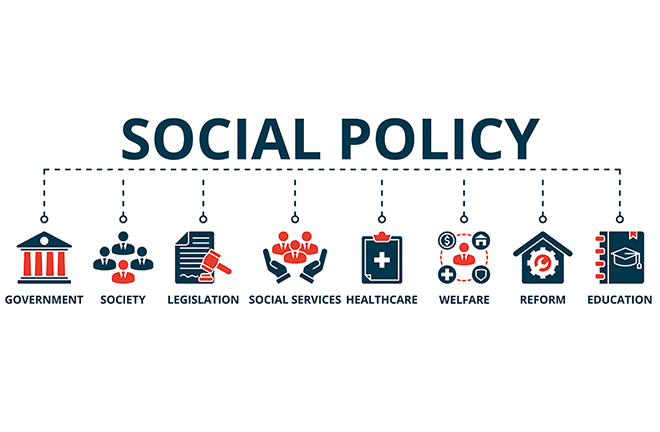Improving China’s social policy system

Social policy Photo: muhammat/TUCHONG
Social policy is a public action system aimed at safeguarding and improving people’s livelihoods, promoting social harmony, and maintaining social equality. China’s social policy system has played an important role in safeguarding and improving people’s livelihoods. However, the country’s ongoing quest for modernization and the growing expectation of its people for a better life both require remedying the deficiencies of the current social policy system.
First, the Chinese social policy system should be more comprehensive. People have multifarious and complex needs that change with socio-economic development. If social policies are not sufficiently comprehensive, problems in one area could undermine the overall effectiveness of the policies. It is thus important to carefully investigate people’s current needs, analyze the specific problems in each area of social policy, and take corresponding measures. Moreover, it is necessary to formulate development plans for social policy based on scientific forecasts of socio-economic trends to ensure that social policies not only tackle existing problems and practical needs, but also respond to future needs proactively.
Second, China’s social policy system should be more balanced. In terms of the institutional arrangements and benefit levels of current social policies, serious imbalances still exist between urban and rural areas, between regions, and between social groups. These imbalances stem from a variety of factors, in particular, the fragmentation of institutional development and the localization of welfare provision. Therefore, the solution primarily lies in institutional integration and equalization of benefit levels.
Institutional integration involves eliminating institutional disparities between urban and rural areas, different regions, and different groups, thereby integrating all members of society into a single institutional system. Equalization of benefit levels involves adjusting the levels of livelihood security and social services within different institutional systems through fiscal intervention by higher-level governments in order to equalize the actual benefits received by individuals under different systems. While institutional integration is the fundamental solution, it may not be practical or efficient in the short term given the large income gaps between different groups in the Chinese population. A two-pronged approach should thus be adopted in the near future with a focus on equalizing benefit levels.
Third, it is important to enhance both the coordination between the social policy system and other components of the public policy system, and the coordination within the social policy system. Social policy is an important part of the overall public policy system, which consists of multiple subsystems. It can only function properly and effectively when all the subsystems are highly coordinated.
Social policies should be coordinated with economic policies to support high-quality economic development by creating a favorable social environment, increasing human capital, and unlocking the potential of domestic consumption. Social policies need to be coordinated with population policies to facilitate high-quality and balanced long-term development of China’s population. Social policies should be coordinated with environmental policies to promote resource and environmental protection and sustainable development.
Coordination within the social policy system needs to be enhanced as well. Firstly, coordination between policies on social security, health care, education, employment, elderly care, child care, and disability benefits serves to increase the efficiency of social policies at the macro level. Secondly, it is necessary to coordinate social policies of different natures and at different levels, actively developing non-essential livelihood security on the basis of strengthening essential livelihood security. Lastly, it is recommended to coordinate the various stakeholders in social policy and improve mechanisms for division of labor and cooperation between social forces and government actions, between governments at different levels, and between various government departments.
Fourth, scientific top-level design of social policies should be emphasized. More efforts should be made to explore development strategies for social policy and strengthen macro-level leadership and comprehensive management of social policy by the Communist Party of China and the Chinese government.
Guan Xinping is a professor in the Zhou Enlai School of Government at Nankai University.
Edited by WANG YOURAN

 PRINT
PRINT CLOSE
CLOSE